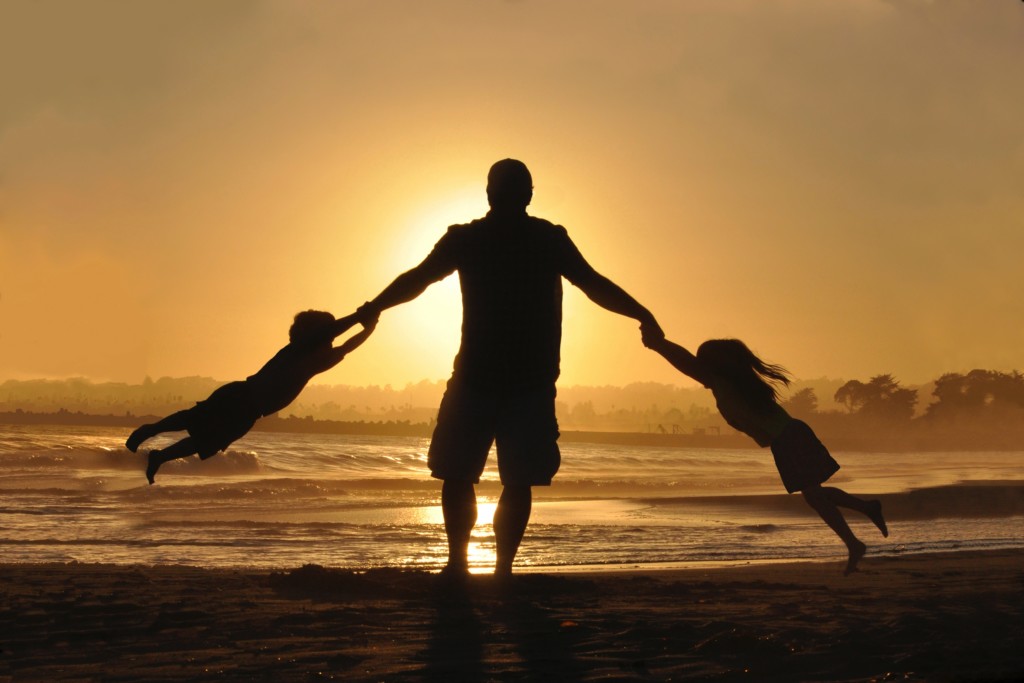
April is Month of the Military Child. During this month, all branches of the military join together to recognize the unique challenges children in military families face. Whether a child was born into a military family or has newly become a military child, they experience changes that civilian children may not be exposed to. They leave behind friends and places they called home. They move across continents and encounter unfamiliar cultures and languages. And just like adults, kids endure deployments and the impact they present.
Deployments are challenging for both parents; the one who is getting deployed leaves the comfort of his/her home and family to navigate an unknown and often dangerous place; and then the parent who is left at home who must take on both parenting roles and keep everything going smoothly.
As adults, at least for me, there’s a tendency to become so focused on everything else, that I can forget how the smallest members of my family are experiencing all these changes, too.
Since the time we married, my husband has deployed twice and is currently on his third deployment. While the last two deployments were not easy, I would say this deployment has been the toughest because we now have two children to think about.
Before my husband left for his deployment, we explained to our boys (ages 2 and 5) where dad will be going and that he will not be home to play with them or have family movie nights. As parents, we figured it was that simple and the boys would be fine, but once he left and as weeks went on, I started to notice a change of behavior in both boys.
I was now navigating my own rough terrain at home.
After a few weeks of dad being gone, I noticed that my 2-year-old clinging to me. He also was becoming easily frustrated with everyone around him, sucking his fingers and he was crying more. As a mom, I know this sounds like typical toddler behavior, but my gut feeling was telling me something deeper was going on with my child.
Understanding how a deployment is affecting young children such as infants and toddlers is tough because they cannot fully communicate their feelings. And let’s be honest, toddlers are complex little beings with different emotions every minute of the day.
As I sat my 2-year-old down to talk with him, I asked him where baba (dad in Arabic) was. He replied “baba at airport, flying airplanes up in sky.”
I then asked him how he feels about baba being gone and does he miss baba?
He replied “yes, me miss baba, baba’s in the airplane.” The last time my son saw his dad was when we dropped him off at the airport and said our goodbyes, so in his mind, dad has been at the airport for all these weeks. With a child this young, it’s harder to decipher what they are truly feeling, and the best way is to recognize changing behaviors.
With our older son, he didn’t seem as upset about dad being gone. He missed having certain conversations with his dad and, overall, he missed the presence of his dad at home. Deployments with school-age children is hard as well, because they understand that their dad/mom is deployed and something “bad” might happen to them and miss the comfort of their presence at home.
I sat with my oldest son and asked him if he missed his dad and what has been the hardest part about him being gone?
He replied “Yes, I miss him. The hardest part of baba being gone is that nobody knows anything about airplanes like he does, and I like it when he’s home, so I can talk to him about everything, and he couldn’t come to my school for my awards like the other kids in my class.”
With older children I believe it’s important to them to stay connected with the deployed parent as much as possible. Children need to know that their dad/mom remain an important part of the family no matter where they are.
Here are some things we are currently doing at home to help ease dad’s deployment:
1. We are trying to keep things at home consistent. We continue our family movie nights and do some activities that we used to do when dad was home.
2. I enrolled my little one in “toddler” school — it helped alleviate some of his clinging and helped him socialize with other children his own age. Also, I maintain a close relationship with my older son’s school and volunteer often in his class.
3. We talk about dad often and watch family videos and look at pictures.
4. With the age of technology, we’re blessed to be able to talk and FaceTime often.
5. I encourage them to talk about how they feel and answer their questions as truthfully as possible.
As a military family, I know this will not be our last deployment. There may be more with newer challenges as my boys grow up. However, military children are remarkably resilient and have learned from earlier generations to become adaptable no matter the circumstances the military life may present them.
So please take the time this month to honor your little one(s) for their small sacrifices.










